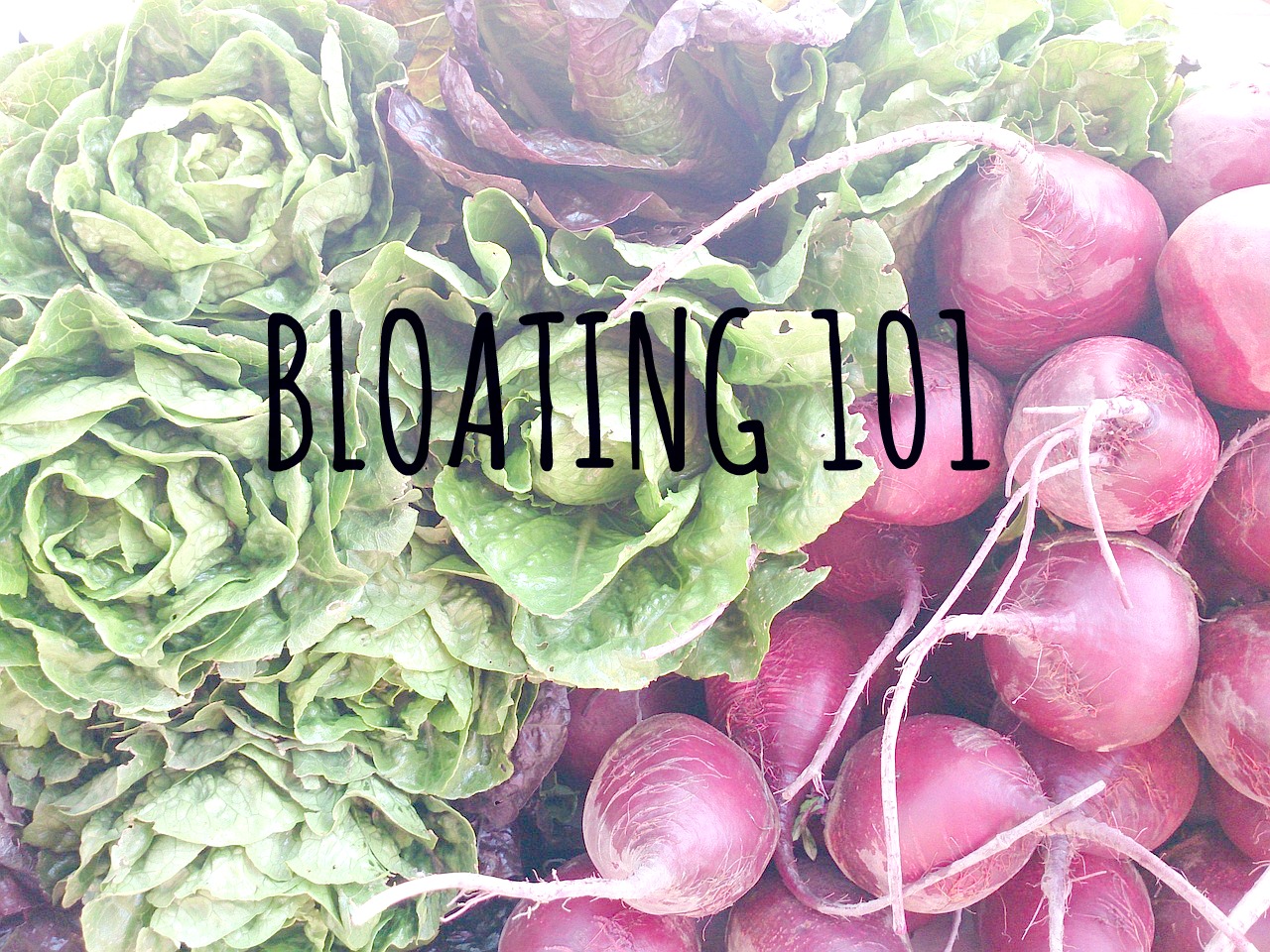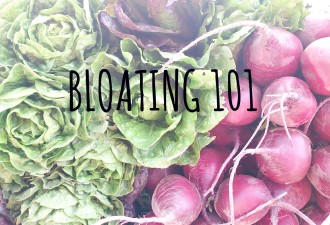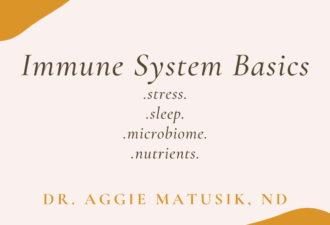When it comes to digestive troubles, I hear the word BLOATED a lot. Usually when I hear this, I ask more detailed questions to determine the possible underlying cause. Often, the cause of bloating and stomach distension is multifactoral and treatment can vary – from simple dietary changes to more complex investigations and set of instructions. Here I briefly outline the top causes of digestive bloating and offer some solutions.
1. RUSHING AT MEAL TIMES
Do you skip breakfast then scarf down your lunch in under 5 min because you are running late? If you don’t slow down at meal times, your digestive system will literally shut down. In order to be able to properly digest food (release hydrochloric acid, pancreatic enzymes etc.), your parasympathetic (relaxed) nervous system needs to be engaged. If you are stressed or rushed as you prepare to eat, blood flow and nervous system activity will be redirected to your muscles and not to your belly. If you eat in a rush, you will feel full and bloated.
SOLUTION: Plan to have regular meal times. Take a few minutes before you eat to calm down, take a few deep breaths to engage your parasympathetic nervous system. Consider taking digestive enzymes to aid digestion.
2. EATING TOO MUCH AT ONCE
We’ve all done this. When you eat, your brain receives messages via the vagus nerve as well as specific hormones from the gut that there is food coming in. The brain then responds to these messages by regulating our behaviour in terms of food quantity intake and sense of fullness. Eating too much too quickly without paying attention to our level of hunger can cause us to overeat, and as a result feel bloated.
SOLUTION: Use a smaller plate when dishing out portions. Chew your food properly and eat until you feel 80% full then stop. If you still feel hungry a few minutes after you put down your fork, have another bite. Don’t live the “I have to finish every last bite on my plate” mentality. (Save the rest of your meal for later!)
3. CONSTIPATION
It is important to have at least one easy bowel movement daily. This is how your body gets rid of waste and toxins. If you are not moving your bowels daily, the waste in your intestines will increase each time you eat. It will also serve to feed the bacteria that live there, which will in turn create gas adding to the feeling of fullness and bloating.
SOLUTION: Increasing water and fibre in your diet should help to ensure you have a bowel movement daily. Regular exercise will also help to improve peristalsis which is the movement of your intestines. Other strategies for chronic constipation include probiotics, magnesium and certain botanicals to improve bowel function.
4. YOUR INTESTINAL BACTERIA
There are trillions of bacteria that live within our digestive system. Some are good for our health, and some can create an environment that gives rise to gas that creates bloating. SIBO aka Small Intestinal Bacterial Overgrowth is a condition in which bacteria usually present in the large intestine, are present in the small intestine (where they are not supposed to be). These bacteria interfere with the digestive process and can be the cause of severe abdominal bloating and distension.
SOLUTION: The good news is that you can change the balance of bacteria that live within your digestive system. Avoiding certain foods that feed specific types of bacteria and building up good bacteria with lacto-fermented foods and probiotics can all be helpful. If your condition is determined to be SIBO (though a breath test that measures certain gases as by-products of microbial metabolism), it must be treated as an infection with the help of specific prescription or herbal antibiotics.
If you are experiencing any other digestive symptoms besides just bloating – like frequent stools, diarrhea, blood in your stool or abdominal pain – you likely need a more thorough physical exam and blood work to exclude certain medical conditions. Please see your primary care provider.








